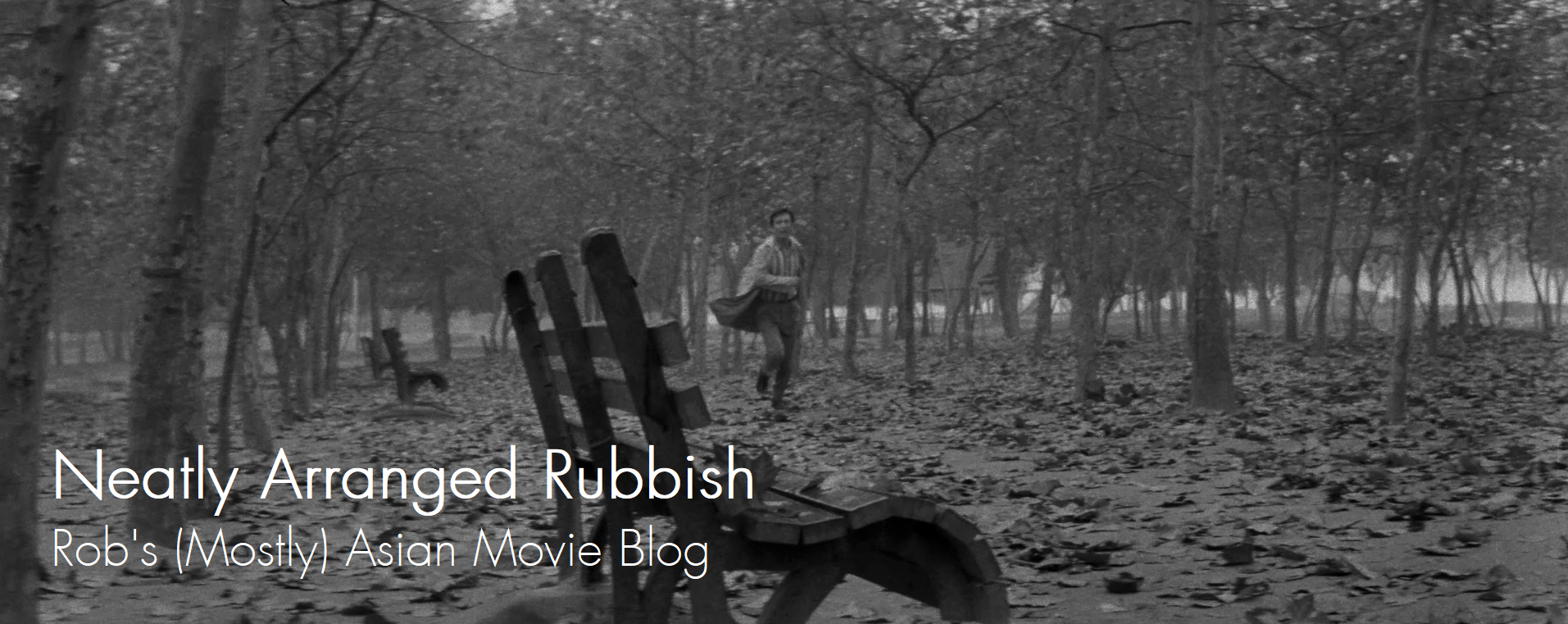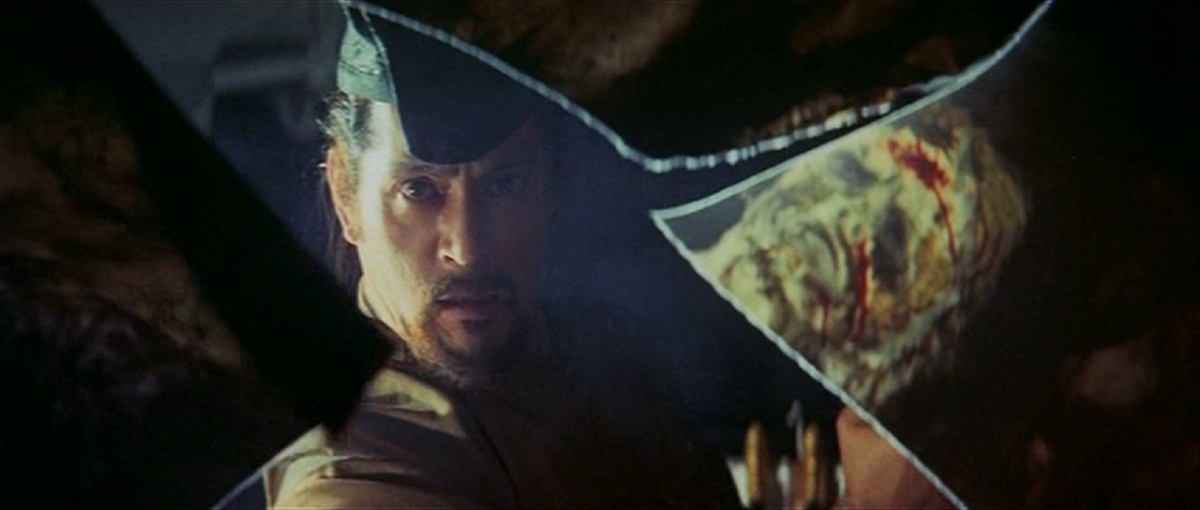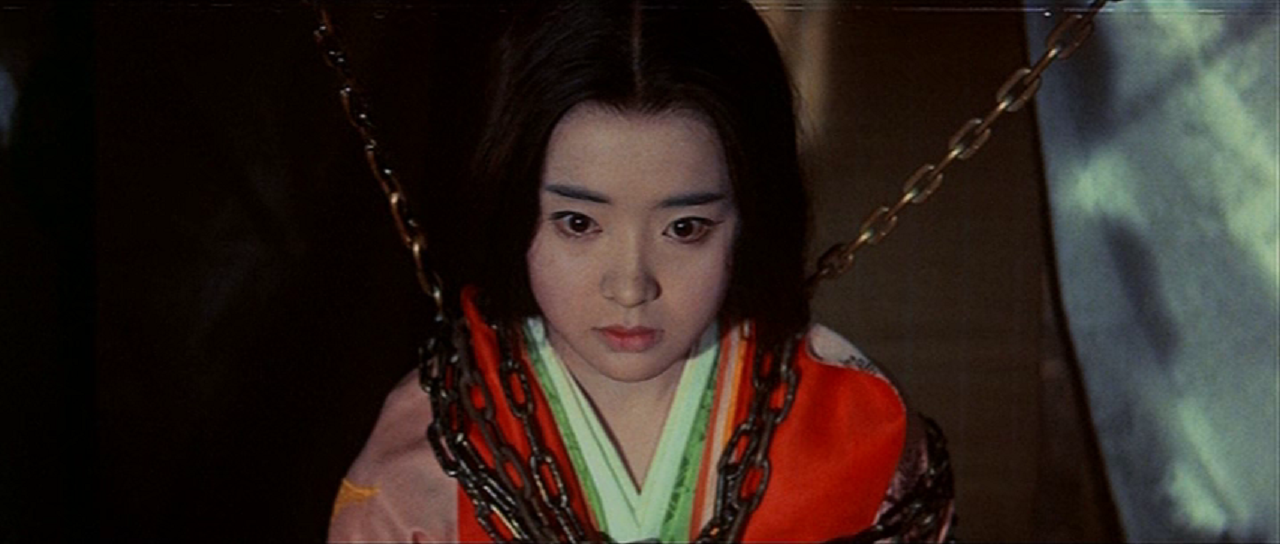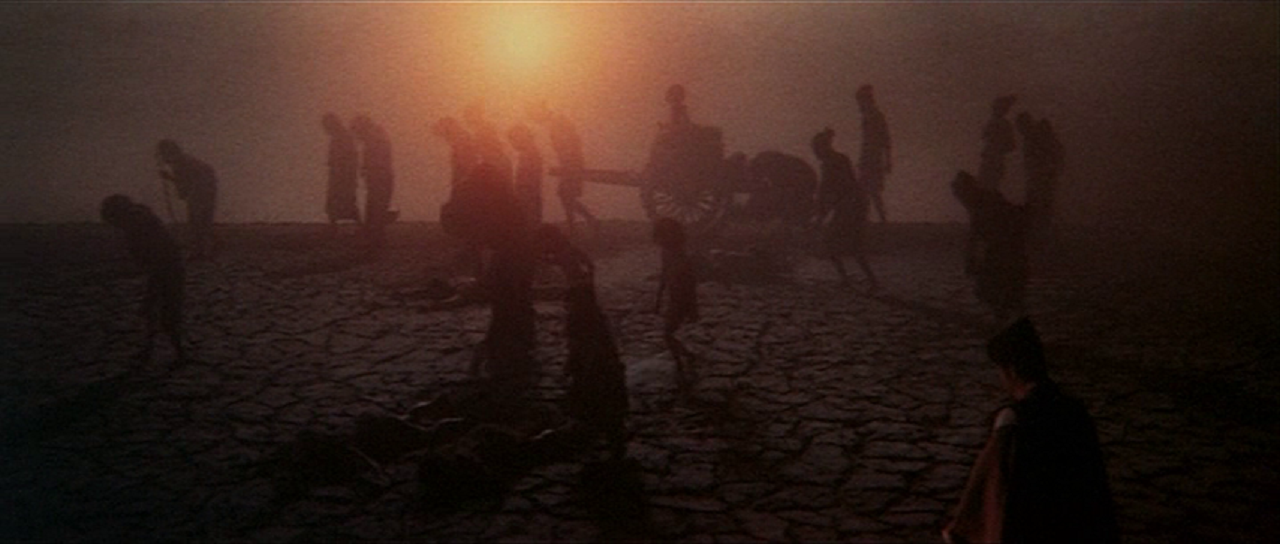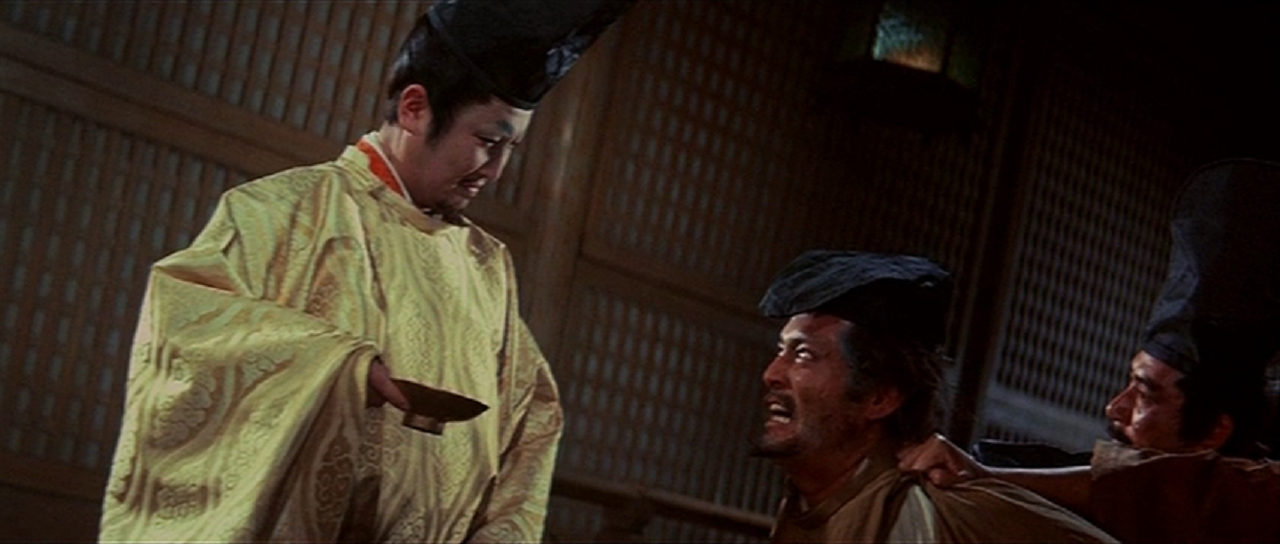Last Updated on September 29, 2020 by rob
In medieval Japan a rebellious Korean artist named Yoshihide (Tatsuya Nakadai) witnesses the death of a peasant at the hands of Lord Hosokawa (Kinnosuke Nakamura) and creates a painting of the dead man cursing Hosokowa that’s so vivid it panics the tyrant into visions of his ghost. So Hosokowa retaliates by ordering Yoshihide to paint a mural extolling his benevolence. After he seizes the artist’s daughter Yoshika (Yoko Naito) and makes her his concubine an enraged Yoshihide resolves to paint a portrait of Hell with Hosokawa and his monstrously pampered lifestyle the centerpiece.
There’s a blunt force and macabre tinge to Portrait of Hell reminiscent of some of Kaneto Shindo’s best work. It pitches two men of iron will against one another – a Lord and his vassal – in a titanic struggle to reveal the truth of the world around them. The sharply written script paints neither Yoshihide nor Hosokawa as entirely good nor entirely bad. Although our sympathy naturally gravitates toward Yoshihide (because at first he seems to be the underdog) he’s also a harsh father who locks his own daughter up because her boyfriend is Japanese and thinks nothing of torturing an assistant with snakes as inspiration for his mural. As an artist Yoshihide’s instincts are spot on but in almost every other respect he’s a fairly awful human being.
His insolence and determination to provoke Lord Hosokawa, not least when he suggests the latter sit for his painting in his personal carriage, a carriage Yoshihide tells him he intends to paint falling into hell with its occupant consumed by flames, carries a horrific cost. That moment depicts Nakamura’s tyrant at his most monstrous but until then he exhibits a good-humoured – even tolerant – attitude toward Yoshihide’s defiance. This is a ruler who is less an evil villain than a pampered child fed a diet of lies by his retinue about the wisdom of his rule. He’s also not blind to the truth of Yoshihide’s claims about the kingdom, just too paralyzed with fear to do anything about it. Both characters are convincingly drawn, we fear and pity them in equal measure. The tyrant can order Yoshihide to destroy his own work but the fearsome visions Yoshihide paints won’t leave Hosokawa’s world alone.
The cushy existence of his court is plagued by ghostly apparitions, disrupted by an invasion of farmers and peasants wearing fearsome masks. An assassin who almost kills Hosokawa turns out to be Yoshika’s boyfriend, himself driven by desperation to join the uprising. In a neat touch the film pointedly elides a ghost Hosokawa sees with one of the masked invaders. Even the relative status of the Japanese lording it over their Korean subjects is undermined when Yoshihide slyly points out that everything the Japanese have learned they stole from the Koreans. The truth is that if this world is hell then it’s a hell of both men’s making. In the film’s most horrific sequence Yoshihide’s daughter ends up burnt alive inside Hosokawa’s royal carriage because her father refuses to apologise to the Lord for suggesting the victim should be him.
“I knew this would happen. I know both of you too well. May you all plunge into Hell” screams Yoshika as she goes up in flames. It’s a superbly staged sequence that moves from tension to terror to sheer horror – with both men shaken to the core at what their stubbornness and arrogance has provoked – and then, in a delirious touch as Yasushi Akutagawa’s score swells optimistically over the image of Yoshika’s burning corpse, celebratory. Far from breaking Yoshihide this hideous sight confirms to him that he is indeed in Hell, that his instincts are right and that he will, therefore, prevail. Amazing sequence! Performances aside the film has two other major strengths. First, cinematographer Kazuo Yamada’s use of colour filters, subtle lighting effects, in camera superimpositions and exteriors shot on studio sets evoke a stylised realism where something nightmarish does indeed seem to lurk just beneath the surface.
I think this why a supernatural twist at the end yet feels all of a piece with the preceding drama. I really liked the moment where Yoshika informs her father that the colony of Korean artists he works with have all been executed and we see Yoshihide – in a strange b/w image – surveying the corpses strewn around the wreckage of the boat they’d attempted to escape in. It’s as if the normal boundaries of physical space and time have just sort of dissolved around him. Also, Yasushi Akutagawa’s rousing score really embodies this implacable battle of wills in which one man seeks to assert his view of the world over that of another. It’s a measure of Akutagawa’s skill that he’s able to take this melody and reuse it as the sweet yet otherworldly tune Yoshika’s boyfriend plays on his flute too woo her. Both characters may indeed be doomed but in such scenes their love proves the essential contrast to the mutually destructive antagonism of Yoshihide and Lord Hosokawa.
